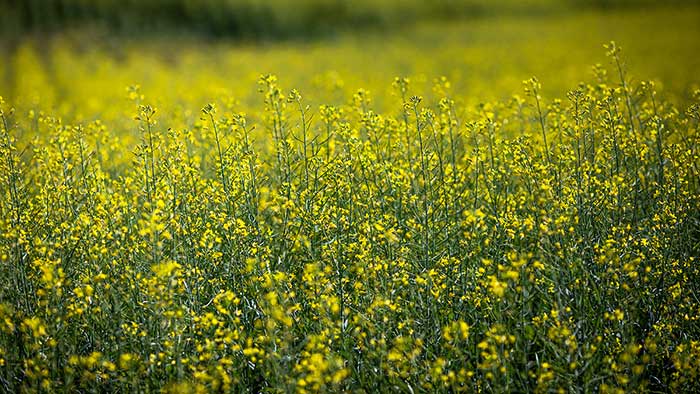ORÍGEO, a joint venture between Bunge and UPL that provides sustainable solutions and end-to-end management techniques for Cerrado farmers, joined Embrapa Agroenergia, Advanta Seeds and Bunge itself to create the RedeCanola project. The objective is to boost the production of this oilseed in the country, contributing to the success of producers and more sustainable agriculture.
“This is the third most produced oilseed in the world, behind soybeans and palm. However, its cultivation is small in Brazil – totaling approximately 92 thousand hectares, with production just over 135 thousand tons/year, according to the National Supply Company (Conab). This is a very interesting option economically for the second soybean harvest or after summer corn. It has good productivity and great potential for oil production (which in some places and materials can exceed 40% in grains)”, informs Igor Borges, head of Sustainability at ORÍGEO.
RedeCanola plans the development of the canola production chain in the country. To this end, competitive hybrid trials will be carried out – coordinated and carried out by Advanta and ORÍGEO – in a tropicalized cultivation system, both rainfed and irrigated, developed by Embrapa. “Canola has the potential to produce well in all regions of the country, in addition to offering economic returns for farmers”, highlights Borges.
According to Bruno Laviola, from Embrapa Agroenergia, Brazil has the potential to become one of the world’s largest canola producers, without the need to expand the agricultural area. This is possible because canola is being grown in the off-season, making its production more sustainable. This approach is crucial, especially when the oil is destined for the production of biofuels, such as biodiesel, renewable diesel, and sustainable aviation (SAF) and marine fuels.
“One of ORÍGEO’s pillars is to shape the agriculture of the future, in a more sustainable way. This is what we are proposing with this initiative that aims to tropicalize this culture, which appears to be very attractive and productive. With this, we fulfill our role of offering new technologies for farmers to be successful in their business. They have more than two thousand decisions to make per harvest. And it is our role to support them on this journey”, highlights Igor Borges.
ORÍGEO focuses its attention on the ideal characteristics of canola oil for the production of biofuel. But there are other uses, such as human consumption, due to the presence of omega 3 and vitamin E in higher levels than in other oils, as well as a good content of monounsaturated fats and a low level of saturated fat. Furthermore, the bran resulting during the production of oil can be used in animal feed, due to the high protein content (34% to 38%).
Canola production is around 25 million tons globally. Canada is the world’s largest producer (28.3%), followed by China (19.5%), the European Union (11.1%) and India (11.1%).






